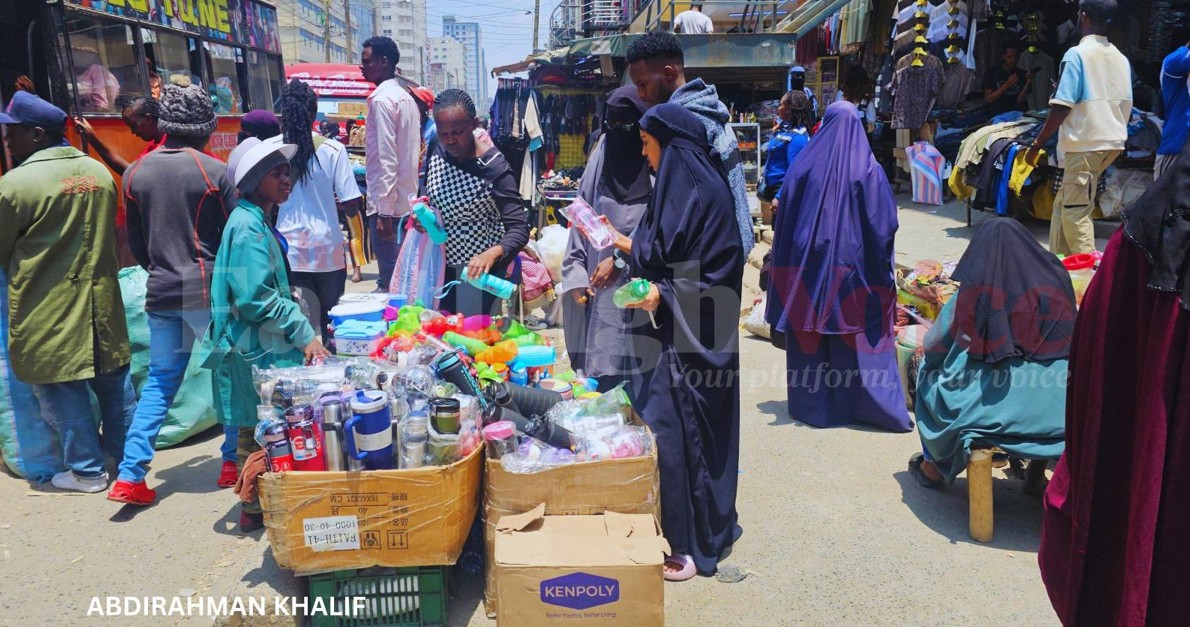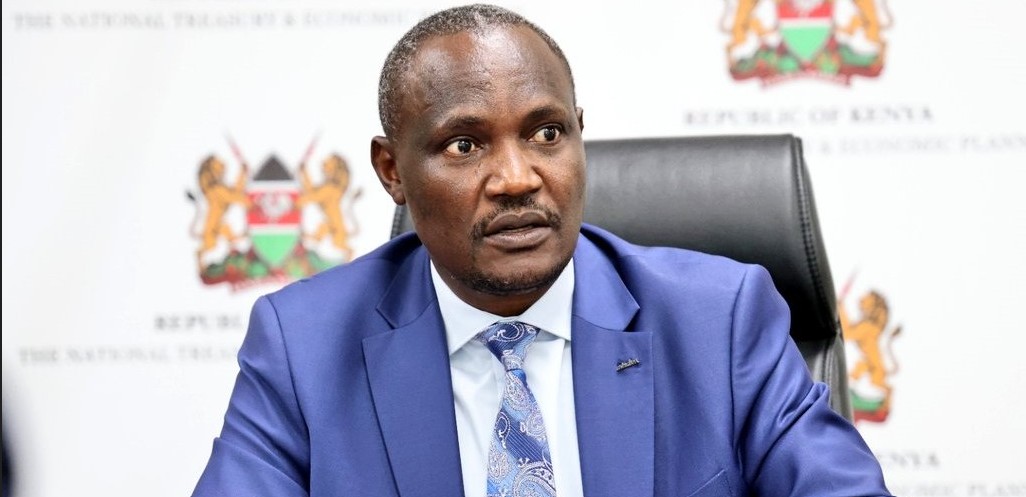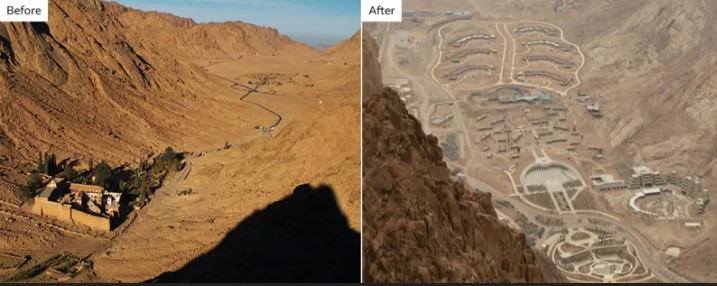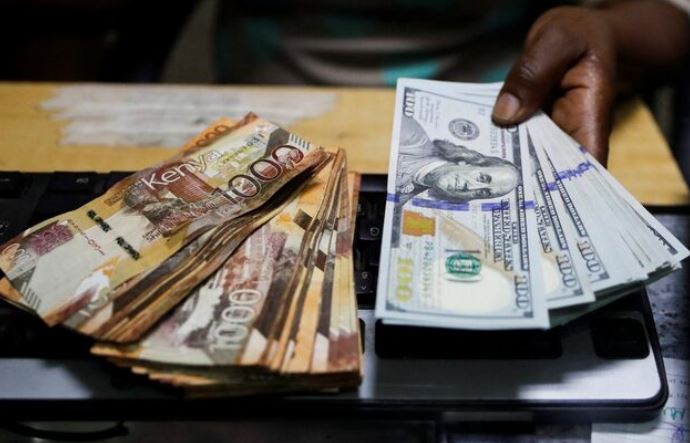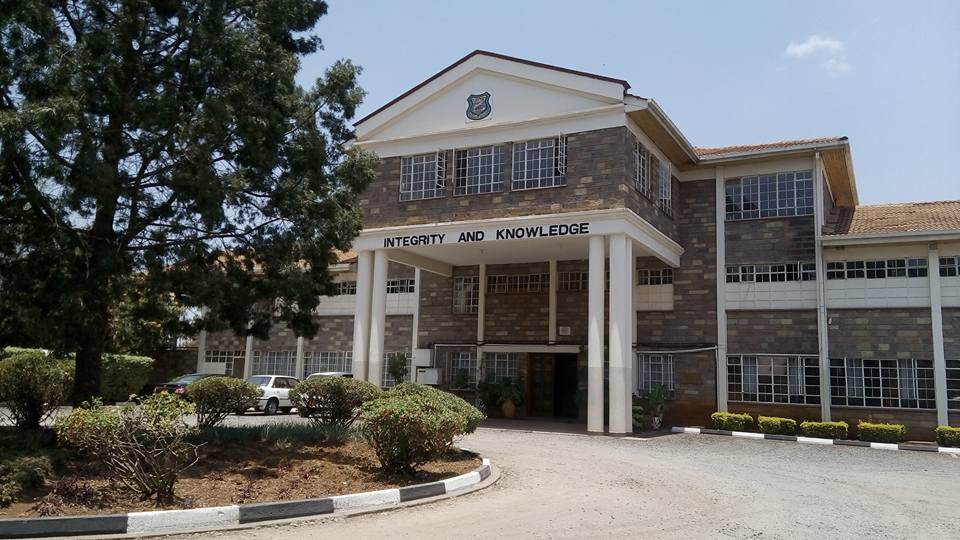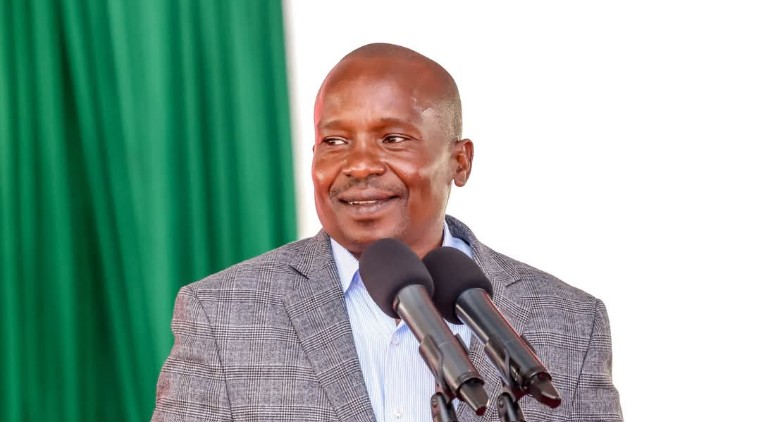New Treasury CS faces uphill battle against graft, unemployment and debt
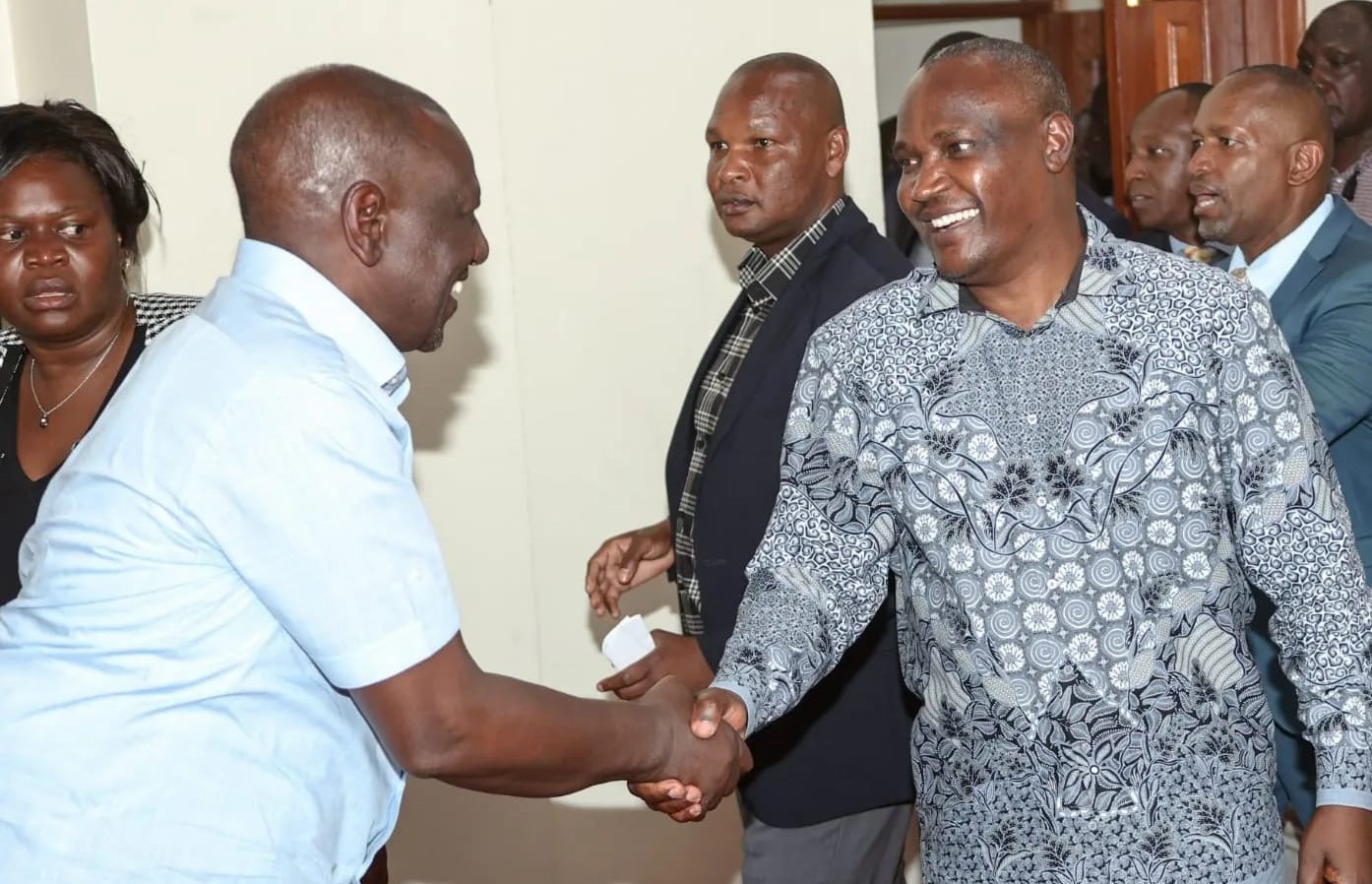
Ruto on Wednesday while announcing his second batch of Cabinet nominees, picked John Mbadi, an ODM nominated MP and current chairman of the National Assembly Public Accounts Committee (PAC) to over from Prof Njuguna Ndung’u.
Kenya’s new cabinet: finance minister faces an uphill battle against corruption, unemployment and debt
Kenya faces difficult times ahead because of pressure to pay debts, create jobs for the youth, offer improved services to citizens and uproot entrenched corruption.
More To Read
- State agencies owe Sh6 billion in unpaid statutory deductions, Treasury warns
- 1,420 public agencies now on government’s e-procurement platform
- Counties not against e-procurement, just need a functional system - CoG Chair Ahmed Abdullahi
- Explainer: Step-by-step process of removing a cabinet secretary from office
- Mbadi urges State agencies to prioritise PPPs in project planning
- Kenya eyes TDB loan to clear Sh51.6 billion debt due September
The tough journey on the new path begins afresh with the appointment of a new cabinet which takes office after weeks of unrelenting protests by Kenya’s young population demanding better governance.
The protests were triggered by steep tax rises proposed in the 2024/25 Finance Bill 2024. Ensuing nationwide protests forced President William Ruto to withdraw the bill. This didn’t stop the protests and President Ruto subsequently fired his cabinet with a promise to address a growing list of demands.
Now in their second month, the protests have regularly shut down businesses in Nairobi.
They are disrupting supply chains and incomes of mostly informal sector business which accounts for about 32 per cent of Kenya’s GDP. Many investors and tourists will also postpone their plans, denying the economy much-needed stimulus.
The incoming National Treasury CS – working with parliament – must now deal with the aftermath of the now-withdrawn Finance Bill 2024 which sought to raise an additional Sh302 billion.
This is 7.5 per cent of the country’s Sh3.992 trillion budget presented before parliament in mid-June.
Ruto on Wednesday while announcing his second batch of Cabinet nominees, picked John Mbadi, an ODM nominated MP and current chairman of the National Assembly Public Accounts Committee (PAC) to over from Prof Njuguna Ndung’u.
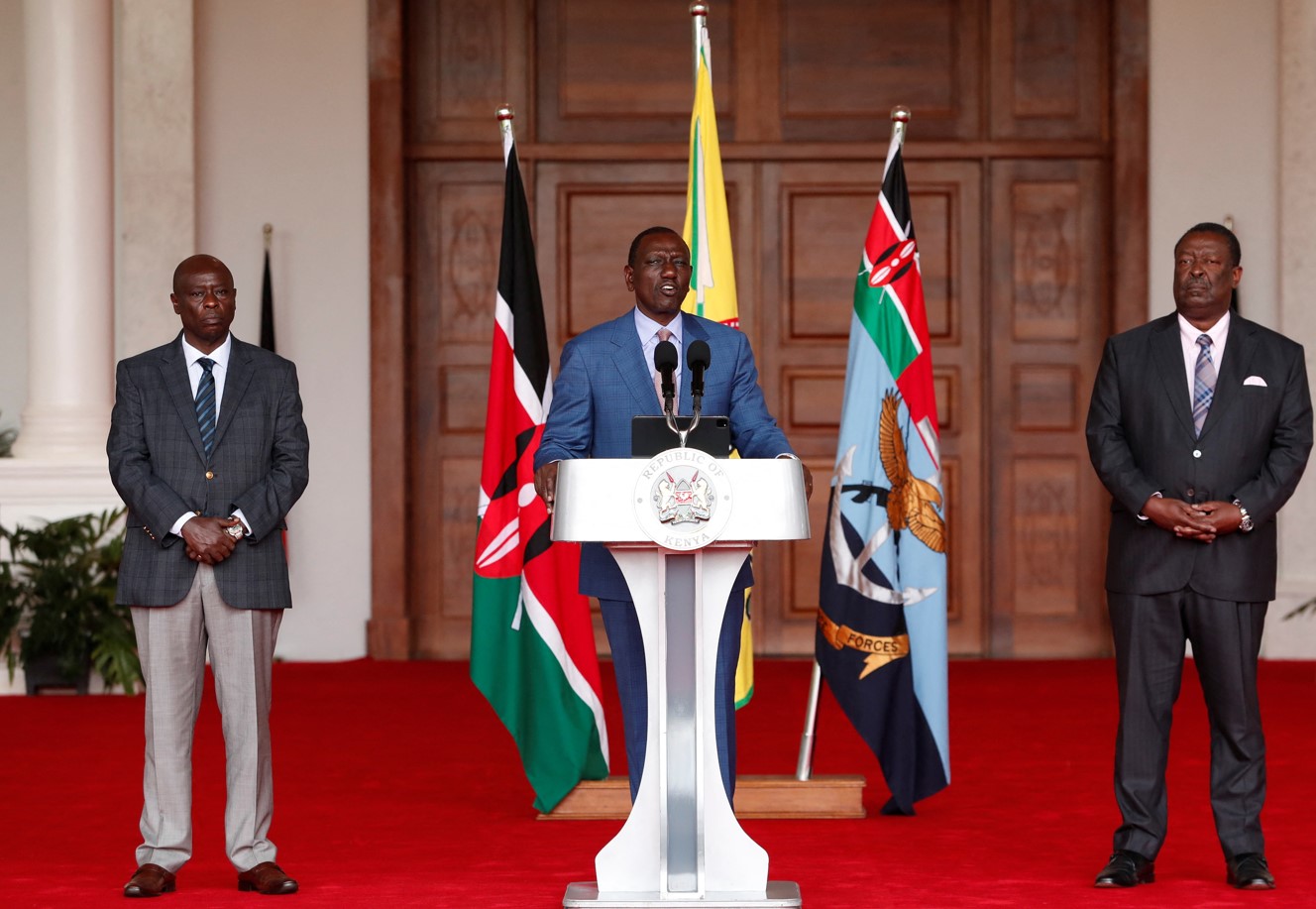 President William Ruto flanked by Deputy President Rigathi Gachagua and Cabinet Secretary for Foreign Affairs Musalia Mudavadi addresses the nation to announce new Cabinet Secretaries in his government at State House in Nairobi on July 19, 2024. (Photo: REUTERS)
President William Ruto flanked by Deputy President Rigathi Gachagua and Cabinet Secretary for Foreign Affairs Musalia Mudavadi addresses the nation to announce new Cabinet Secretaries in his government at State House in Nairobi on July 19, 2024. (Photo: REUTERS)
He now awaits vetting in Parliament before assuming the role of the next Treasury CS.
Deep cuts in spending are already before parliament in a supplementary bill that will be considered in a climate of shrinking tax revenues.
The new CS could respond in two ways.
First, he could find innovative and creative ways of raising tax revenue and creating new jobs. This might calm the Gen-Z storm.
Second is cutting government expenditure, which could trigger job losses and provoke more protests. This is accentuated by the feeling that current economic reforms including new or enhanced taxes are imposed by “outsiders”. More protests could trigger a government clampdown on freedoms and rights and could stifle the economy, given the direct link between freedoms and economic growth.
The funding gap
The failure to raise the extra Sh300 billion could affect or even cripple some priority projects. Treasury’s room for manoeuvre could be further narrowed by calls to remove other unpopular taxes, including the affordable housing levy.
The levy is calculated at 1.5 per cent of the gross salary of an employee matched by a similar contribution by the employer. It also applies to business incomes.
 President William Ruto inspects the Nyongores Affordable Housing Project in Bomet County on March 16, 2024. (Photo: PCS)
President William Ruto inspects the Nyongores Affordable Housing Project in Bomet County on March 16, 2024. (Photo: PCS)
Added to this are calls to increase funding of universities and to stop further increases in the fuel price through increased road maintenance levy.
The government is under pressure to hire 46,000 junior secondary school teachers. The hiring of medical interns is still on course despite the funding crisis. In the farming sector, the government has committed to offset huge coffee and sugar sector debts owed by farmers and continue with fertiliser subsidies.
It has also promised to settle money owed to county government and increase funding to universities. All these are priority projects with political ramifications as the clock ticks towards the 2027 election.
Government spending will be cut by Sh177 billion and borrowing will rise by Sh164 billion according to the supplementary budget. There are also plans to merge or dissolve 47 state corporations, reduce the number of advisers by 50 per cent and cut non-essential travel by public officers. Budget lines for the president’s spouse and that of the deputy have been removed.
In the meantime, Kenya is currently relying on the Finance Bill, 2023 to collect taxes. The projected tax revenue stands at Sh3.343.2 trillion, equivalent to 18.5 per cent of GDP. There is a deficit of 3.3 per cent of GDP, which is expected to rise with the shelving of the Finance Bill, 2024.
It’s unclear if some government employees will lose jobs. When Kenya last faced an economic crunch, the International Monetary Fund imposed preconditions that included a mass layoff of civil servants and state corporation workers.
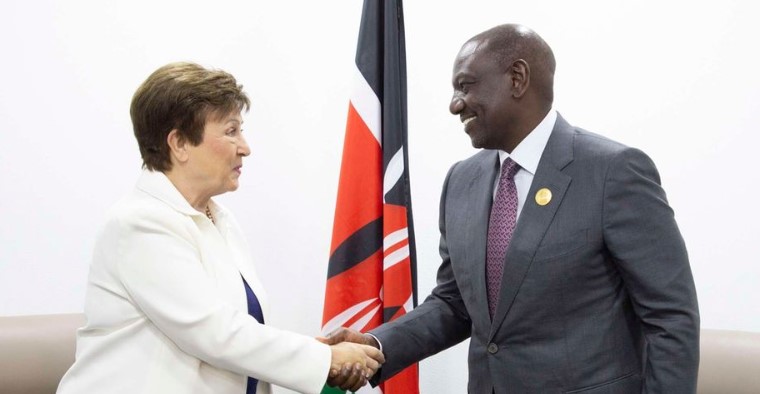 President William Ruto with Kristalina Georgieva, managing director of the International Monetary Fund (IMDF), in Sharma El-Sheikh, Egypt, on September 21, 2023. (Photo: PCS)
President William Ruto with Kristalina Georgieva, managing director of the International Monetary Fund (IMDF), in Sharma El-Sheikh, Egypt, on September 21, 2023. (Photo: PCS)
It’s unlikely at any rate that scaling down the government will be enough to reduce the budget deficit.
What happens next
I expect the government to continue borrowing to meet its spending – albeit at reduced levels. More government borrowing could raise interest rates and make credit access harder for the private sector and, by extension, slow down the economy.
But it’s not all gloom and doom. Kenya is in line to get concessional loans from the World Bank and other multilateral bodies. The willingness of bilateral donors to fund Kenya during times of crisis was attested to during the COVID-19 pandemic.
It is also within the government’s ability to start thinking beyond tax to economic reforms that will catalyse growth. How to make the country more attractive to investors and entrepreneurs should preoccupy the new treasury secretary. Deregulating the economy even further could unleash competition, innovation and growth.
This is key, given that value-added tax is one of the core sources of public revenues in Kenya. It accounted for 24 per cent of tax revenues generated in 2021 compared to 22 per cent from personal incomes and 11 per cent from corporate entities. If things return to normal and the government builds confidence in the economy, consumption will go up and raise more taxes. The extra taxes will depend on economic growth and consumer sentiments about the future.
Addressing the Gen-Z and other generations’ economic grievances and building more confidence in the economy will attract investors, expand existing businesses and create the jobs that are at the heart of Gen-Z demonstrations. Thinking long term, it seems Kenya must go through a renaissance, a rebirth in governance, leadership and even economics.
Top Stories Today




